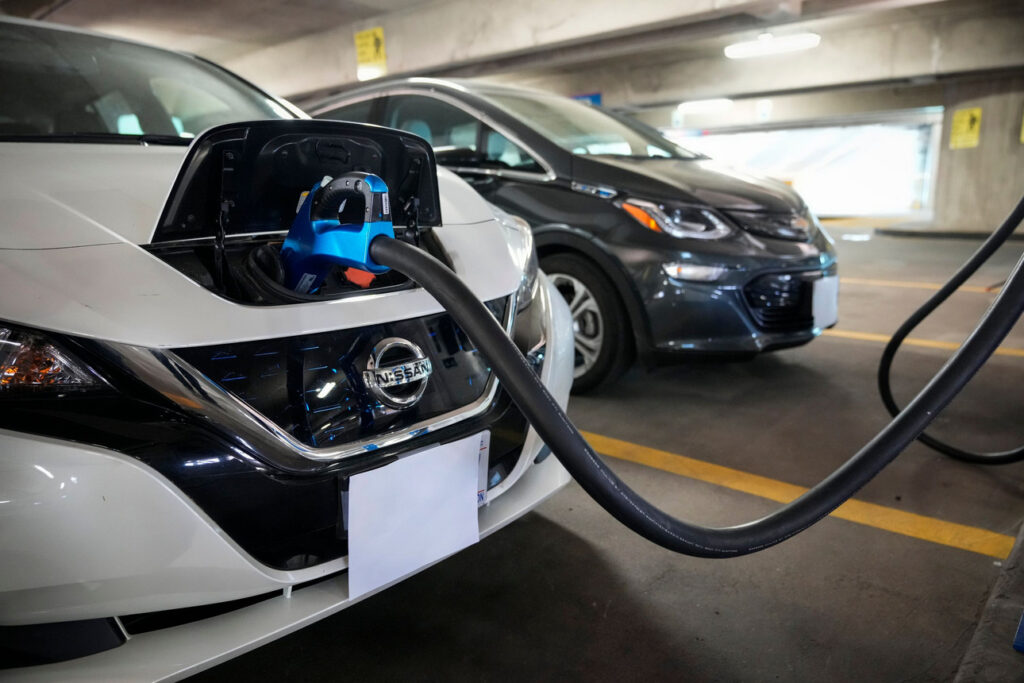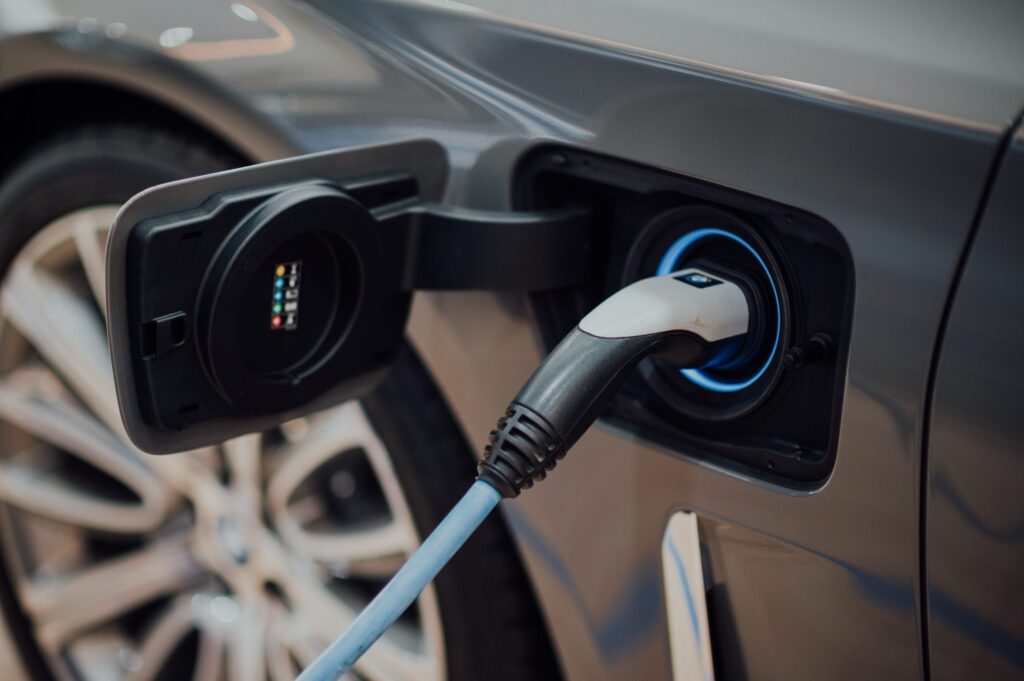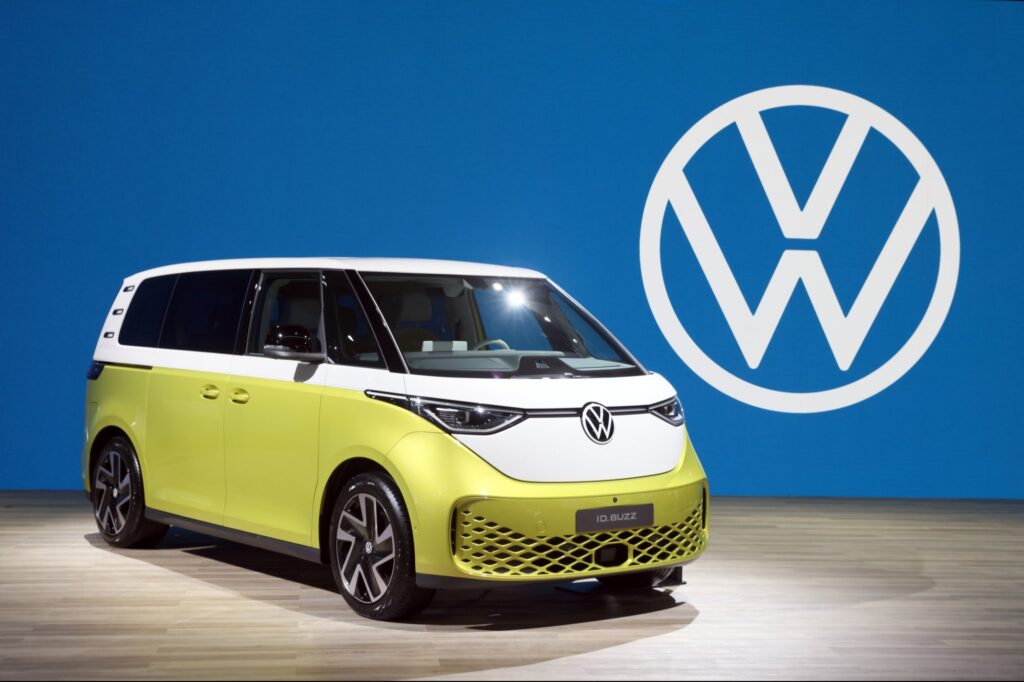
Did you know the first electric car was made in the early 1830s? While it’s a far cry from today’s sleek models, this invention marked the beginning of a journey toward sustainable transportation. Fast forward to the present day, the electric car industry stands at the forefront of the automotive sector’s evolution.
Driven by pressing environmental concerns, groundbreaking technological advancements, and a significant shift in consumer preferences, electric vehicles (EVs) are no longer a niche market. They represent a critical component in the global pursuit of reducing carbon emissions and fostering a greener future.
Staying up to date with industry trends lets drivers make informed decisions about their vehicle purchases. This helps them get the best bang for their buck while reducing their carbon footprint. Let’s dive into the hot topics currently driving EVs.
Table of Contents
Current Trends in the Electric Car Industry

Source: politico.com
The electric car industry is constantly in a state of flux, with new gadgets, models, and policies being introduced all the time. Below are just a few of the core trends transforming how we view EVs.
Technological Advancements
One of the most exciting aspects of the electric vehicle market is the pace of technological innovation. Battery technology, in particular, has seen significant breakthroughs, leading to longer ranges and shorter powering times. Modern EVs can travel much further on a single charge than their predecessors, making them more practical for everyday use and long-distance journeys alike. Furthermore, developments in infrastructure, such as the expansion of rapid networks and the introduction of wireless charging capabilities, are making eco-friendly cars more convenient than ever.
Diversification of Models
The range of electric vehicles available to consumers has expanded dramatically. Gone are the days when opting for a green car meant compromising on style, quality, or affordability. Today, nearly every segment of the auto market offers electric options, from compact city cars and family-friendly SUVs to high-performance sports cars and luxury sedans. This diversification is a testament to the industry’s commitment to meeting diverse consumer needs and preferences, ensuring there’s an EV for every type of driver.
Government Policies and Incentives
The role of government policies and incentives cannot be overstated in facilitating the electric car industry’s growth. Many countries have implemented measures to encourage EV adoption, ranging from tax breaks and subsidies for green automobile purchases to investments in charging infrastructure. Some regions have even set ambitious targets for phasing out the sale of new petrol vehicles.
Consumer Behaviour and Market Dynamics

Source: transportenvironment.org
Growing Environmental Awareness
One of the most significant influences on EV adoption is consumers’ increasing awareness of environmental issues, particularly air pollution and climate change. As drivers become more conscious of their carbon footprint, the appeal of electric cars, which offer zero tailpipe emissions, has grown substantially. This eco-consciousness is not just a trend but a deep-seated shift in how people view their impact on the planet, influencing their transportation choices.
Demand for Sustainable Transportation
Closely tied to environmental awareness is the demand for sustainable transportation solutions. Consumers are actively seeking alternatives to fossil fuel-powered vehicles, motivated by the desire to reduce their reliance on non-renewable energy and contribute to a cleaner future. Electric cars, with their dependence on electricity, fit perfectly into this paradigm, making them an attractive option for eco-conscious drivers.
Economic Considerations and Incentives
While environmental concerns are a significant factor, economic considerations also play a crucial role in consumer behaviour. The decreasing cost of green technology, coupled with various incentives such as tax rebates, grants, and exemptions from certain fees, has made electric cars more affordable to a broad range of consumers. Additionally, their lower operating and maintenance costs add to their appeal in the long run.
Challenges Facing the EV Industry

Source: entrepreneur.com
Despite all the good news surrounding green automobiles, they’re not without issues. The EV industry, while on an upward trajectory, faces several challenges that could potentially hinder its growth and broader acceptance. These are good to know so that drivers are as informed as possible.
Range Anxiety and Charging Infrastructure
One of the most persistent concerns for potential EV buyers is range anxiety—the fear that an electric vehicle won’t have enough battery life to reach its destination or a suitable charging point. Even though battery technology has improved significantly, providing longer ranges, the availability and convenience of infrastructure still lag in many areas. The best way to avoid these issues is to use a car charger app, like OVO Charge, which can easily locate a charger which suits your model and specific requirements.
High Initial Costs and Market Accessibility
While the total cost of ownership for a green car may be lower over its lifespan, the initial purchase price can be a significant barrier for many consumers. The upfront cost of EVs remains higher than their petrol counterparts, mainly due to the expensive battery technology. Making electric vehicles more affordable through economies of scale, technological advancements, and continued government incentives will be key to making them accessible to a broader audience.
Battery Production and Recycling Concerns
The environmental pros of electric cars are obvious when it comes to operational emissions; however, the production and end-of-life treatment of EV cells raise environmental and ethical concerns. The mining of raw materials such as lithium and cobalt has been criticised for its ecological impact and labour practices. These issues need a solution if electric cars are ever going to become totally ecologically safe.
Conclusion
It’s an exciting time to own an electric car. As these vehicles become more integrated into our daily lives, they offer a cleaner alternative to traditional transportation. The challenges ahead are substantial, yet the collective efforts of governments, manufacturers, and consumers signal a readiness to tackle them. The promise of a more sustainable and environmentally friendly mode of transportation becomes increasingly tangible, marking a pivotal shift in how we perceive and prioritise automobiles in the 21st century.







